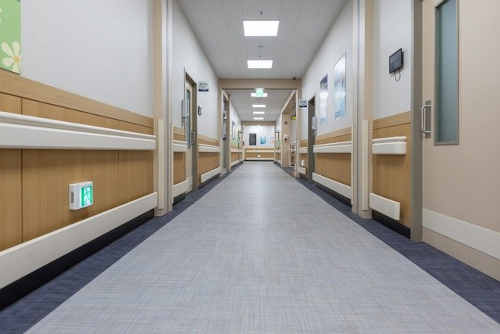A recent protest march in Albany, NY (the capital) brought some light to a well known but little publicized problem. That of the underpaid health care worker in NY. Specifically for home health aid workers.
New York, and other states such as California, have enormous social service programs and health care is one of the leading job providers in both states.
However, as anyone who works in the industry will attest, not everyone is making nurse money.
While the general public knows that medical professionals such as Doctors make huge paychecks, it’s less well known that nurses are on average making 100k+ a year.
However, this march was about the wages of lower paid health care workers such as home health aids, case managers, and patient care techs.
Let’s take a deep dive down into the topic and see how much these individuals are paid, who is paid more, and where exactly all of the money goes?
It’s an interesting topic because hundreds of millions of dollars are spent each year….per city! That money is certainly not going to the front line low paid health care workers and case managers. And even the incredibly highly paid nurses (who rake in 100k a year for 6 months of work) are profiting.
I covered the issue with low paid case managers recently. In that instance, California non-profits and other government funded agencies were collecting hundreds of millions to deal with the homeless plauge in the city yet the pay for case workers was slightyly above minimum wage.
Here’s a hint…executives at Non-Profits and Hospital administrators often have salaries in excess of 7 figures.
What Is the Average Health Care Worker Pay?
The average health care worker varies depending on what exactly that person does. As we’ll discuss below, some health care workers such as Nurses and P.A’s make $120-$160 an hour.
That’s far from the norm. The average health care worker is someone such as a home health aid, a patient care tech, or a case manager. These individuals might make $18 an hour in large cities such as NYC and $15 outside of the city.
It’s important to remember that huge segments of the population in states such a New York and California require case managers as they are enrolled in benefits programs such as Medicaid, housing assistant programs, low-income food assistance (SNAP, EBT, and WIC).
For every program that exists there are multiple non-profit organizations that are connected to them and administer them to the public.
So, a person living in Brooklyn or Albany might have interaction with a dozen case managers to administer their programs.
The state and the non-profits do not pay these case managers high salaries (one reason that recruiters find that case managers do not require benefits from their employer is that they are often themselves living in low income subsidized housing and receiving Medicaid and food assistance).
A quick search online for Home Health Aids or Case Managers will tell you all you need to know about their pay.
Staffing agencies and non-profits post on sites like Indeed daily for these workers. They are paid currently anywhere from 15 to 19 an hour to handle difficult tasks such as Medicaid enrollment, housing voucher assistance, and landlord application for unemployed and disabled low income residents.
Who is a Health Care Worker?

Right, such a broad term isn’t it. For the purpose of this article we are specifically talking about health care workers who are paid at the low end of the spectrum.
Namely, these folks are dealing with things such as Respite Work (a government funded program where low income parents leave their children or parents in the hands of paid respire workers) housing advocates (people who are trained as case workers to find apartments and secure government funding to pay for that tenants rent, home health aids (these people do daily chores such as cleaning and help people with bathroom issues).
In the context of this article, we are not discussing health care workers who are Nurses. LPNs, RNs, and NPs all make significantly more money than patient care techs, home health aids, and all of the non-clinical case managers.
The focus of the march was primarily the home health aid population. In major cities like NYC these people make minimm wage in the majorty of cases.
Who Doesn’t This Article Apply To?
As mentioned, this article doesn’t apply to Nurses. That’s the number one category of health care worker who is not discussed.
Nurses (be they LPN or the more lucrative and higher paid RN) make significantly more money. On average, a nurse is paid more than a lawyer or most other professionals.
During the height of Covid, nurses in many states were making $150-$180 an hour and also receiving free hotels, tax free stipends, and free meals.
This article on low paid health care workers does not apply to nurses.
Why Are Health Care Workers Paid So Little?
So, now to the question as to why health care workers are paid so little?
Well, first let’s address the big question. Is there enough money and funding for health care workers?
Yes, of course there is. The money is taken directly from the taxpayer. Non-profits and hospitals are all funded (especially in the case of city run hospitals) directly and exclusively by the tax payer.
While there are always people who donate money to a non-profit, the money that non-profits collect from “donations” is significantly less than the federal and state funding.
Hundreds of millions pour in each year to non-profits and hospitals. That money stays at the top. And in most cases you can see exactly who is paid what.
Executives who run non-profits routinely are paid millions of dollars. Even small non-profits that operate a single “group home” for disabled adults (where three to five adults might live) regularly make 6 figures and have staff in the dozens who are all paid full-time salaries.
Here’s just a few examples of Non-Profits where the executives were paid exorbitant salaries or there was a scandal regarding suspiciuous pay.
- NY Times Expose on Homeless Shelter Executive Making Over a Million
- CORE Servies- NY Post Coverage On Scandal and Millons in Funding
- NYC’s Billion Dollar Homless Shelter Money Scandal Under Mayor Bill Deblasio
- Bronx Non-Profit: More Million Dollar Scandals
- Homeless Executives in LA Paid More Than White House
And keep in mind, the day hab respite worker or case manager or home health aid who works in this non-profit sector is likely paid barely above minimum wage.
The money is not trickled down to the bottom, in this case. There is no bonuses or 401k plans. In the world of health care workers, it’s a revolving door from one non-profit to another. Case mangers might have a dozen employers on their resume in less than a decade. It’s not seen as unusual.
Most of the money flows only to the executive staff. The directors, even the directors of small organizations such as one room day hab centers, often pull in six figures a year.
Who Makes The Big Money in Healthcare?
The obvious answer is to look at the top. Executives who run hospitals and non-profits make the most money. The next in line are the corporations, often LLCs set up exclusively to vendor to the hospital. These are often family, friends, or associates of the executives.
When you look at the donation chart for a hospital or non-profit, it’s a good indication that you’ll also see a list of the major business people who are connected with working with the hospital: vendors, construction firms, and the like.
While Nurses make huge salaries, the big money is at the top. The CEO’s of hospitals, healthcare companies, and private insurance companies rake in millions.
Nurses do make a lot of money, and they have strong unions to protect them. It was not commonly known how much nurses made until Covid–when videos of nurses dancing and singing went viral on TikTok. Many people were critical, saying that nurses should not have been dancing and laughing during a pandemic, and they highlighted their enormous paychecks– the average nurse in a major city starts off at 100k.
Nurses fought against this by highlighting the extreme salaries that hospital CEOs and healthcare CEO’s made.
Many media articles, including NPR, have covered the incredibly salaries of healthcare CEOs.
The recent crime and public reaction involving the shooting of a CEO brought this to the forefront.

Hey I’m Chris . 20+ years in the industry. I’ve worked every role from Executive recrutier to Agency founder and consultant. If you want to learn more or reach me,vist the about page or use my contact form.

